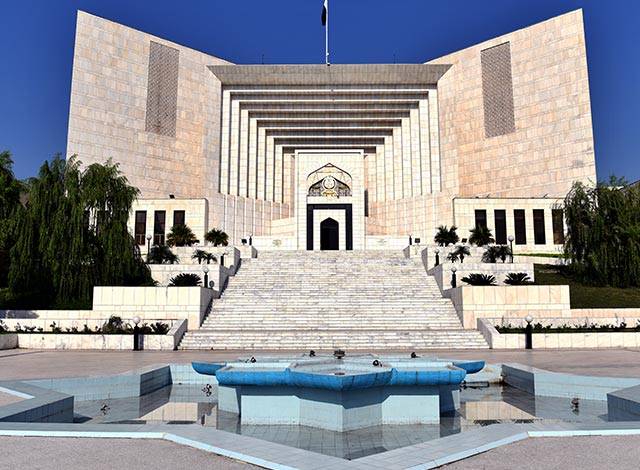Apex court to hear set of petitions challenging SC reforms law tomorrow

Stay tuned with 24 News HD Android App

The SC registrar office has allotted numbers to another three petitions challenging the Supreme Court (Practice and Procedure) Act 2023 aimed at curtailing the powers of chief justice of Pakistan. The registrar office has clubbed these petitions with other similar petitions fixed for hearing tomorrow (Tuesday), reported 24NewsHD TV channel.
The registrar office allotted numbers to these pleas. It allotted number 10 to Zaman Wardag advocate’s petition; number 11 to Ghulam Mohayuddin’s plea and number 12 to Azhar Siddique advocate’s application.
All these three petitions will be clubbed together with other similar petitions going to be heard tomorrow (May 2) by a larger eight-judge bench presided over by Chief Justice of Pakistan Justice Umar Ata Bandial.
The other members of the bench included: Justice Ijaz ul Ahsan, Justice Munib Akhtar, Justice Sayyed Mazahar Ali Akbar Naqvi, Justice Muhammad Ali Mazhar, Justice Ayesha A Malik, Justice Syed Hasan Azhar Rizvi and Justice Shahid Waheed.
In a pre-emptive move, the Supreme Court in its April 13 ruling stopped the government from implementing the SC Practice and Procedure bill once it became the law.
The detailed order, issued by an eight-member SC bench including CJP Bandial, said that contentions raised disclosed that there was a “substantial, immediate and direct interference with the independence of the judiciary in the form of multiple intrusions, in the guise of regulating the practice and procedure of this court and conferring upon it a jurisdiction that appears not to be permissible under any constitutional provision”.
The controversial law passed by the joint sitting of parliament on April 10, though returned second time unsigned by the President, technically became an act of parliament on April 21.
Despite the apex court’s halting order, the National Assembly Secretariat directed the Printing Corporation of Pakistan to publish the law in its official gazette.
Initially, the bill was approved by the federal cabinet on March 28 and then passed by both houses of parliament. However, President Arif Alvi refused to sign it into law with the observation that it travelled “beyond the competence of parliament”.
However, a joint session of parliament passed it again on April 10 with some amendments and it was then again referred to the president for his assent. But on April 19, the president again returned the bill without signing it, saying that the matter was sub judice, or being considered by a judge or court.
Reporter Amanat Gishkori
